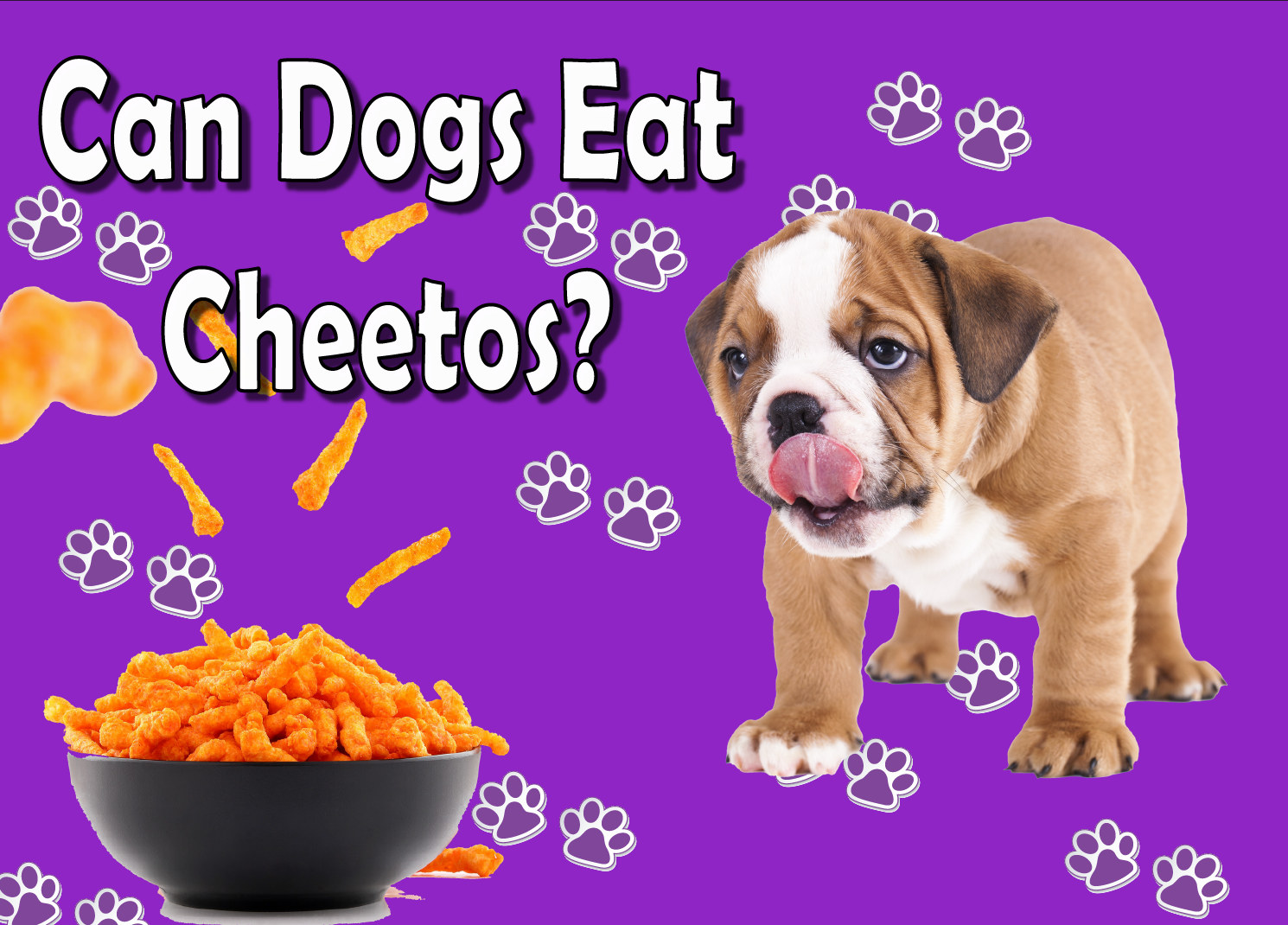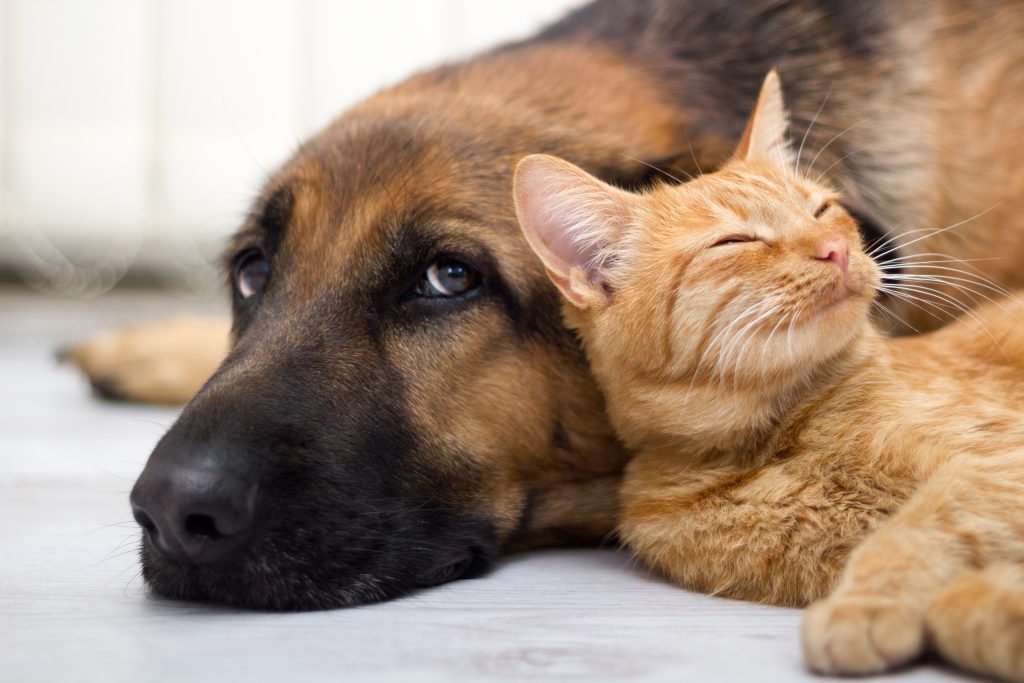Can Dogs Eat Cheetos? Risk Vs. Reward

Picture this: you are sitting down, getting ready to enjoy a relaxing night with your furry friend and a few savory snacks. You get up for a second to grab a drink and when you come back, your brand-new bag of Cheetos has been eaten through by your dog. What should you do?
Don’t worry if you find yourself in a situation similar to this; it happens to even the most experienced dog owners.
Luckily, Cheetos are not a directly toxic food to dogs. Despite this, they aren’t considered healthy and can pose a health risk to our fluffy friends. Specific Cheeto products such as puffed Cheetos or Flamin’ Hot Cheetos can pose unique risks that should also be thought of when they concern dogs eating Cheetos.
Nutritional Value of Cheetos
There are different types of Cheetos, each with its own nutritional makeup. For our purposes, we’ll focus on the original crunchy Cheetos. One serving is 21 pieces, and those 21 pieces contain 160 calories. According to the package, the rest of the nutrients are listed as:
| Nutrient | Value |
|---|---|
| Calcium | 10 mg |
| Carbohydrate | 15 g |
| Cholesterol | 0 mg |
| Fat | 10 g |
| Saturated Fats | 1.5 g |
| Trans Fats | 0 g |
| Iron | .4 mg |
| Fiber | > 1 g |
| Potassium | 50 mg |
| Sodium | 250 mg |
| Protein | 2 g |
| Sugars | > 1 g |
| Vitamin D | 0 mc |
Surely, you’ve watched a dog eat something especially tasty before, usually something they shouldn’t be eating. They could easily inhale a full serving or two before you cross the room to pick up the spilled bag.
Besides the high calories and other nutrients, the ingredients themselves are equally as unhelpful for a dog.
Main Ingredients in Cheetos
- Enriched Corn Meal (Corn Meal, Ferrous Sulfate, Niacin, Thiamin Mononitrate, Riboflavin, Folic Acid)
- Vegetable Oil (Corn, Canola, and/or Sunflower Oil)
- Cheese Seasoning (Whey, Cheddar Cheese [Milk, Cheese Cultures, Salt, Enzymes]
- Canola Oil, Maltodextrin [Made from Corn]
- Natural and Artificial Flavors
- Salt
- Whey Protein Concentrate
- Monosodium Glutamate
- Lactic Acid
- Citric Acid
- Artificial Color [Yellow 6]
These ingredients aren’t toxic to dogs, but they don’t provide any health benefits to your dog either. In fact, they may actually ruin your dog’s long-term health if they consume too much – it just won’t happen immediately after eating one or two.
Cheetos Are Not Toxic to Dogs

On their own, regular Cheetos are not a direct health risk for dogs. They do not contain any ingredients or additives that are known to be toxic. Thus, if your dog helped itself to a few Cheetos, there is no need for immediate alarm!
Even though Cheetos are non-toxic to dogs, a few ingredients can pose minor risks. For instance, the sodium, dyes, herbs, and spices in certain Cheetos may all impact your dog’s gastrointestinal health.
Should You Feed Your Dog Cheetos
Due to some of their ingredients, it is not recommended to feed your dog Cheetos directly. There are countless options for other foods that would be a better choice for your dog. For instance, some people sparingly use less-intense snacks like Ritz as a special snack. If all else fails, using plain old dog treats is the safest option!
Dangers of Feeding Your Dog Cheetos

As mentioned, there are a few key things that could pose a risk to your dog if they find their way into a bag of Cheetos. Let’s take a short look at each main concern:
Sodium
One of the main issues with dogs eating human foods is sodium. Dogs are not well adapted to salty foods. Even the slightest excess of salt can cause them to dehydrate, which is not healthy! Most human snacks, Cheetos included, are extremely rich in sodium.
Thus, it can only take a few Cheetos to set off your dog’s salt balance. This is especially true for smaller dogs!
Gas
Another big problem with human food is the gas and bloating it can cause. Highly processed grains can easily expand and create gas when they are eaten by dogs. Not only can this cause discomfort, but it can also lead to bigger issues, such as gastrointestinal blockages.
Unknown Additives
Cheetos can also be loaded with unknown additives that are dangerous for dogs. Extra spices such as garlic and onions are great examples of snack seasonings that are toxic for dogs. Likewise, special Cheeto flavors, such as Flamin’ Hot or Jalapeno, may also have unhealthy ingredients.
Summary
At the end of the day, Cheetos are not the best snack to feed your dog. In addition to the regular dangers of feeding human food to dogs, Cheetos can also be full of additives, sodium, and gas-inducing compounds that are dangerous for your furry friend. With this in mind, it is probably best to keep the Cheetos all for yourself and opt for a simple milk bone the next time your dog is craving a savory treat!